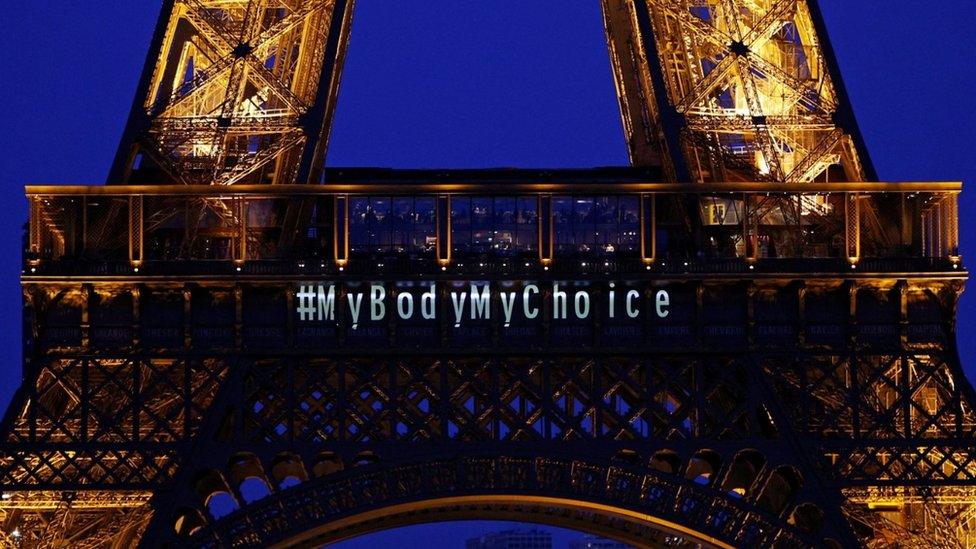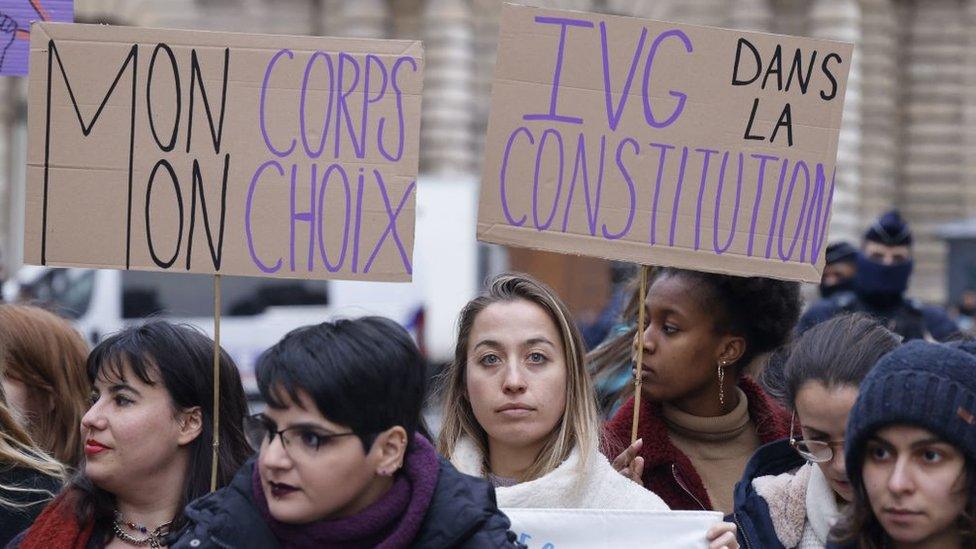France makes abortion a constitutional right
- Published

France has become the first country in the world to explicitly include the right to abortion in its constitution.
Parliamentarians voted to revise the country's 1958 constitution to enshrine women's "guaranteed freedom" to abort.
The overwhelming 780-72 vote saw a standing ovation in the parliament in Versailles when the result was announced.
President Emmanuel Macron described the move as "French pride" that had sent a "universal message".
However anti-abortion groups have strongly criticised the change, as has the Vatican.
Abortion has been legal in France since 1975, but polls show around 85% of the public supported amending the constitution to protect the right to end a pregnancy.
And while several other countries include reproductive rights in their constitutions - France is the first to explicitly state that an abortion will be guaranteed.
It becomes the 25th amendment to modern France's founding document, and the first since 2008.
Following the vote, the Eiffel Tower in Paris was lit up in celebration, with the message: "My Body My Choice".
Before the vote, Prime Minister Gabriel Attal told parliament that the right to abortion remained "in danger" and "at the mercy of decision makers".
"We're sending a message to all women: your body belongs to you and no one can decide for you," he added.
While resistance from right-wingers in parliament failed to materialise, President Macron has been accused of using the constitution for electoral ends.
Critics say the revision is not necessarily wrong in itself, but unnecessary, and accused the president of trying to use the cause to boost his left-wing credentials.
Since 1975 the law has been updated nine times - and on each occasion with the aim of extending access.
France's constitutional council - the body that decides on the constitutionality of laws - has never raised a query.
In a 2001 ruling, the council based its approval of abortion on the notion of liberty enshrined in the 1789 Declaration of the Rights of Man, which is technically part of the constitution.
So many jurists say abortion was already a constitutional right.

The Eiffel Tower lit up with the message "My body My choice" after the vote
The constitutional change was prompted by recent developments in the US, where the right to abortion was removed by the Supreme Court in 2022. Individual states are now able to ban the procedure again, ending the right to an abortion for millions of women.
The move to enshrine abortion in the French constitution has been welcomed by many.
"This right (to abortion) has retreated in the United States. And so nothing authorised us to think that France was exempt from this risk," said Laura Slimani, from the Fondation des Femmes rights group.
"There's a lot of emotion, as a feminist activist, also as a woman," she said.
But not all support it, with the Vatican repeating its opposition to abortion.
"There can be no 'right' to take a human life," the Vatican institution said in a statement, echoing concerns already raised by French Catholic bishops.
It appealed to "all governments and all religious traditions to do their best so that, in this phase of history, the protection of life becomes an absolute priority".
- Published3 March 2024
